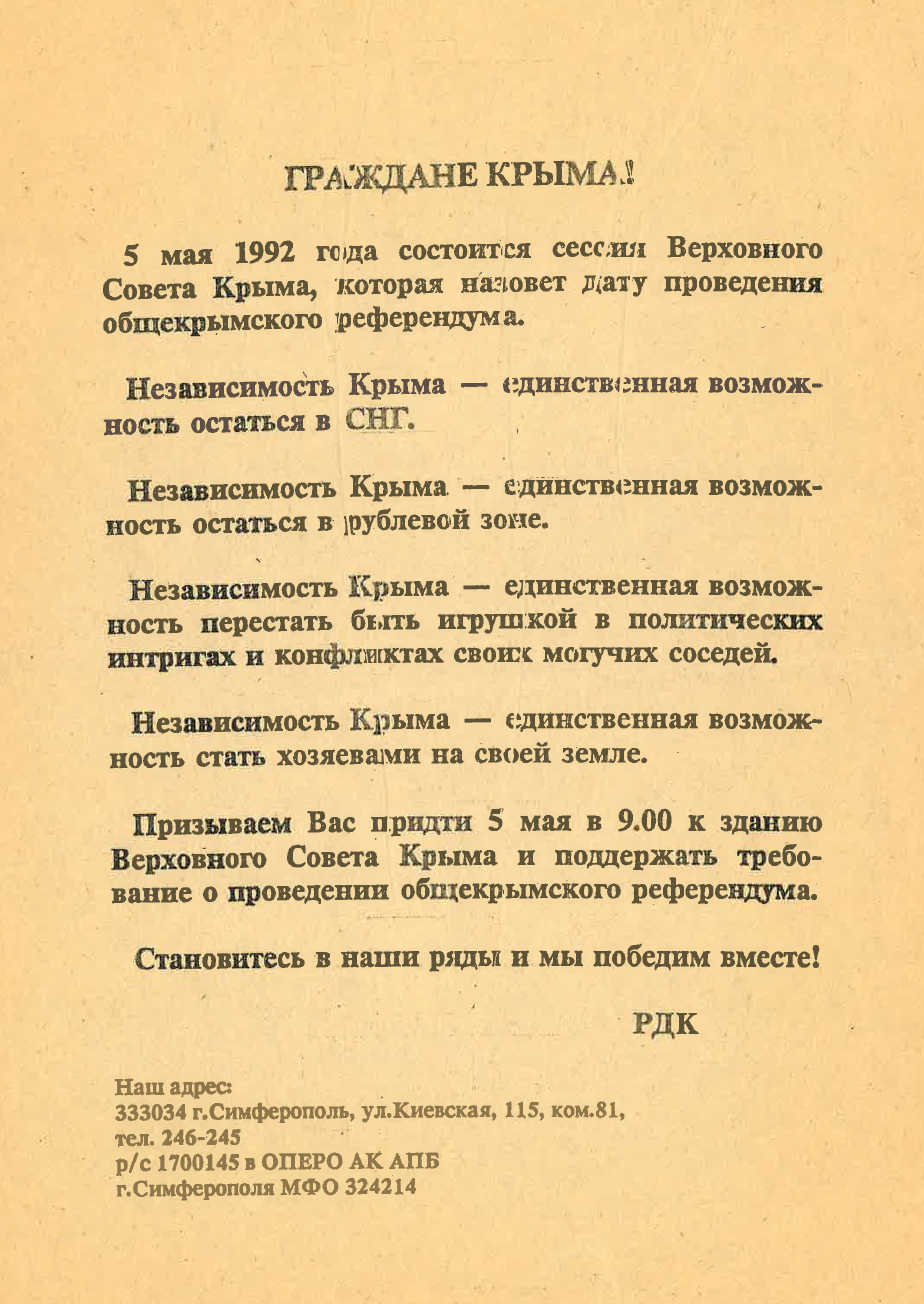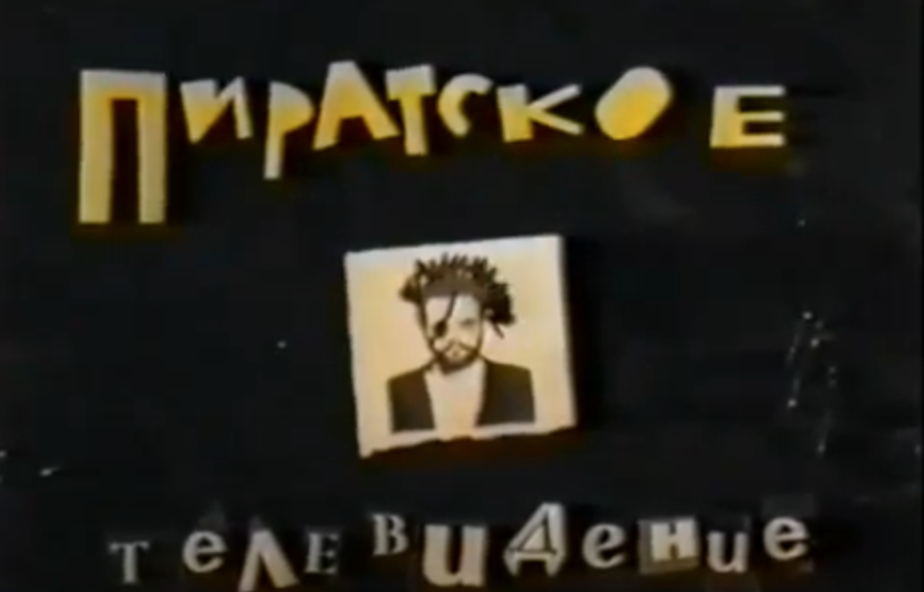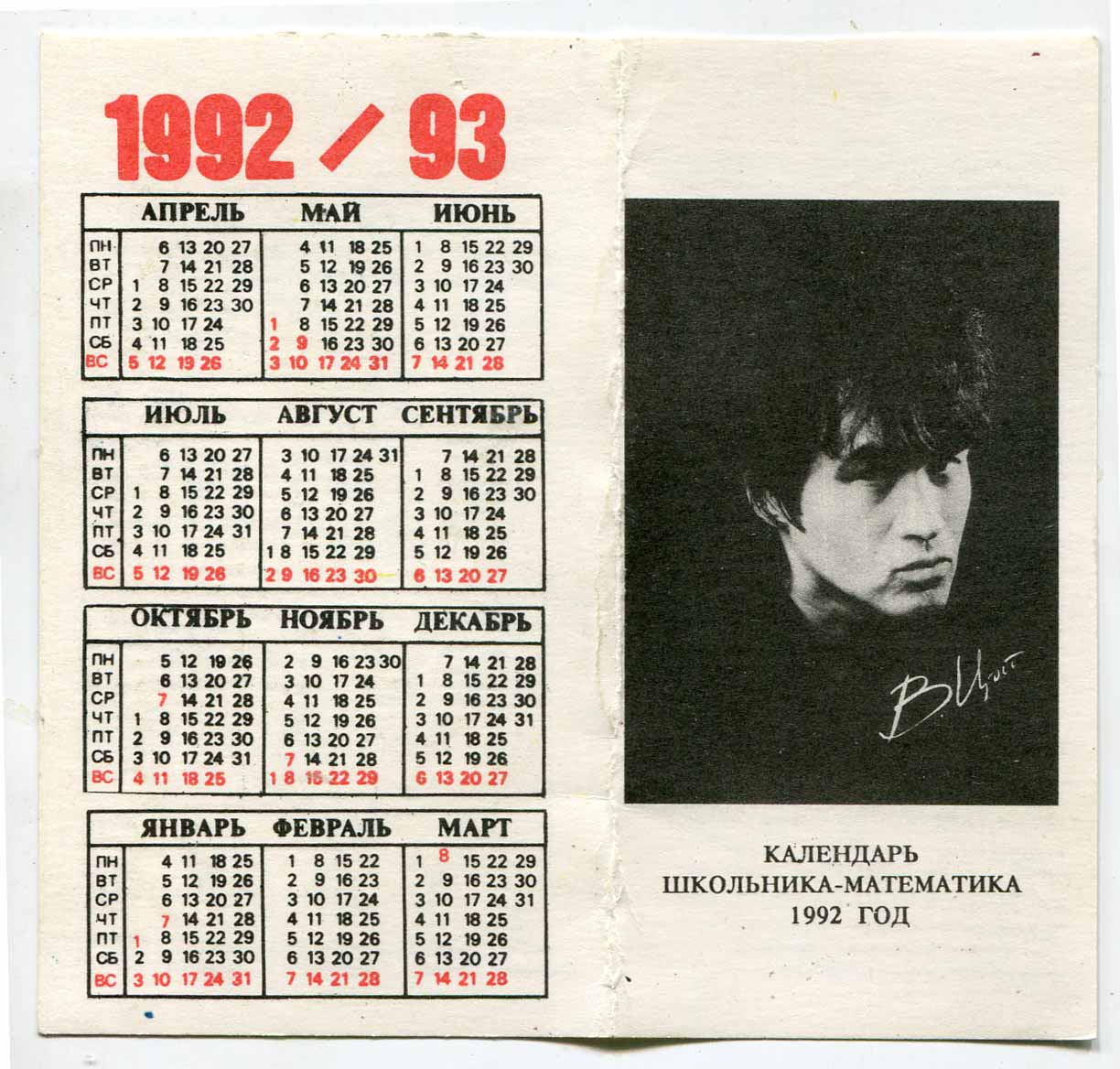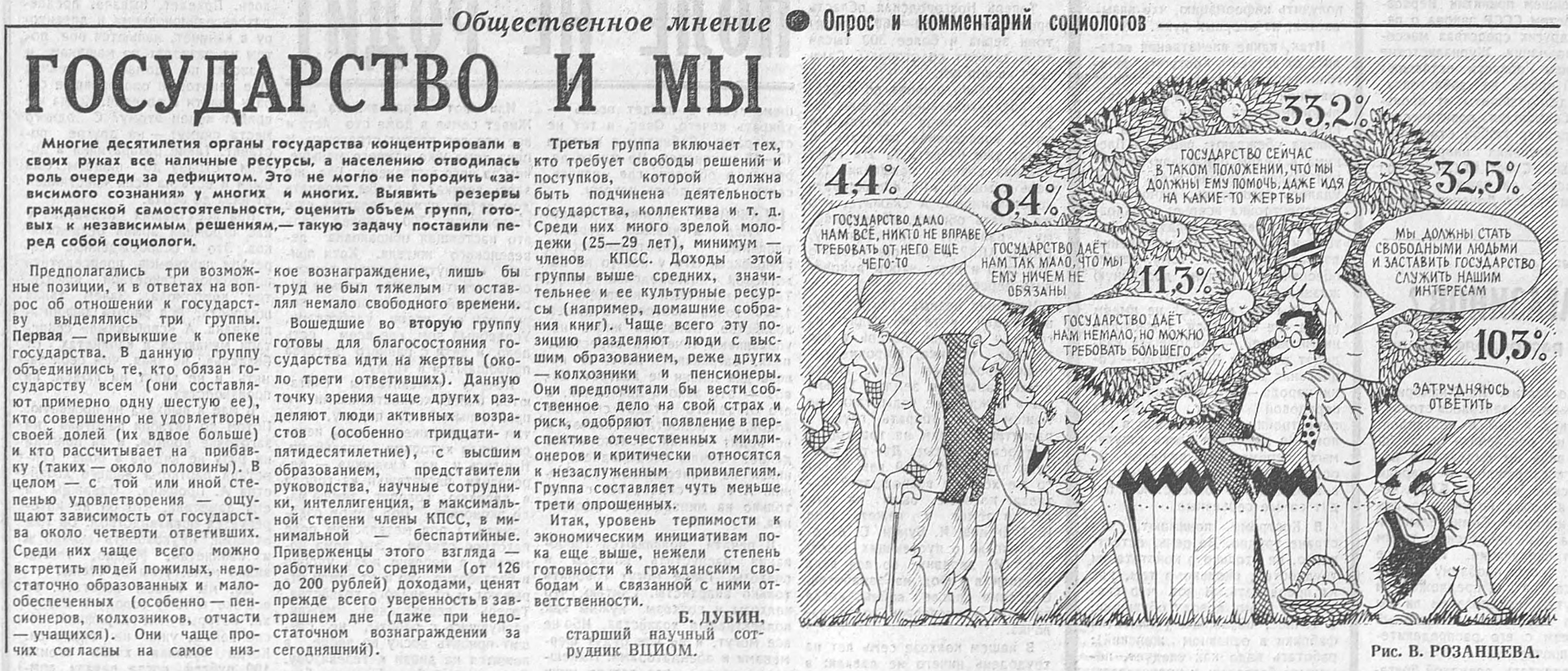No preview available
Chikatilo Trial (Draft)
snippet of BBC footage of trial; photograph of Chikatilo at the trial
View Artifact
The Future of Crimea
Campaign documents surrounding the 1991-92 referenda on the independence of Crimea, Ukraine.
The First (Home-Made) Post-Soviet Independent TV
The Saint Petersburg “New Artists” stage a meeting of the committee “anti-state of emergency” on their “Pirate Television,” declaring their support of Yeltsin against the group of communist hardliners who led the coup d’etat against Gorbachev on August 19, 1991.
Viktor Tsoi-themed calendar for 1992-1993
A math calendar intended for a secondary school student bearing a photograph of Viktor Tsoi (1962-1990), leader of the rock band Kino, on its front cover.
The Rise of Public Opinion Polling
A collection of data presentation venues of the All-Russian Center for the Study of Public Opinion (VTsIOM). After the fall of the Soviet Union, VTsIOM became the Russian Federation’s most important polling organization.
No preview available
Novikov's Shocking Coming Out (Draft)
During an interview, Timur Novikov and Sergey "Afrika" Bugaev talk about their otherwise unconfessed homosexuality in an intentionally shocking way.
View Artifact



